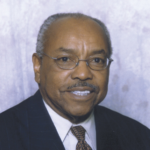A recent Pew Research Center survey of the national black community has led to many news stories about the values of the black middle class. The Washington, D.C.-based nonpartisan “fact tank” provides information on issues, attitudes and trends shaping America and the world through public opinion polling. Last November, the center released Blacks See Growing Values Gap Between the Poor and the Middle Class: Optimism about Black Progress Declines, an 88-page survey on black America. This report raised the question, “Can blacks live the American dream?” Unexpected findings in the survey highlight a growing values gap between the poor and middle classes.
The word “values,” when connected to a large community of people, should not be overlooked without a more thorough questioning when a negative trend line begins to show. In 1965, Sen. Daniel Moynihan, an economist, wrote The Negro Family, emphasizing the connection between fatherless families and increased welfare rolls. It was ignored and criticized. However, the study led to the 1988 Welfare Reform Act. The black community, four decades later, is again faced with a negative trend line that should not be ignored.
Based on the Pew survey, for the first time in the history of blacks in America, we have two black Americas that go beyond haves versus have-nots. Traditional standards like behavior, morals, self-worth and ethics are societal values that are primarily passed to children through family.
The survey asked, “Have the values of middle class and poor blacks become more similar or more different, no change or don’t know?” Sixty-one percent of the people said, “more different.”
Another question asked whether blacks are “better or worse off now than five years ago?” Twenty percent said “better,” while 29 percent said “worse.” Forty-nine percent said “the same.”
Blacks said discrimination is common, but whites disagreed. However, blacks and whites agree that most immigrants work harder than most blacks and whites in low-wage jobs. Both groups agree hip-hop and rap music has a bad influence on society.
While the Pew survey has generated much media attention, it has been void of solutions.
Some scholars sounded warnings more than two years ago. In July 2005, a panel of experts briefed members of the United States Commission on Civil Rights on the consequences of stagnation in the growth of the black middle class. It was televised by C-SPAN.
Policies coming from outside the black community can address this pathology, but there is a need for a paradigm shift that must come from within.
Blacks with healthy values are prosperous, and those without them are left behind. Wholesome values stem from a belief in individual freedom and personal responsibility. Those who are not successful exercise freedom without personal responsibility. This behavior lures people into destructive pursuits of instant gratification rather than their own long-term good and that of their families.
The primary way to teach proper values is in the schools, but quality schools which are educating and preparing students for the outside world or marketplace are few and far between. Only education and positive values can change the attitudes young black people.
Lee Walker ([email protected]) is the president of The New Coalition of Social and Economic Change.




